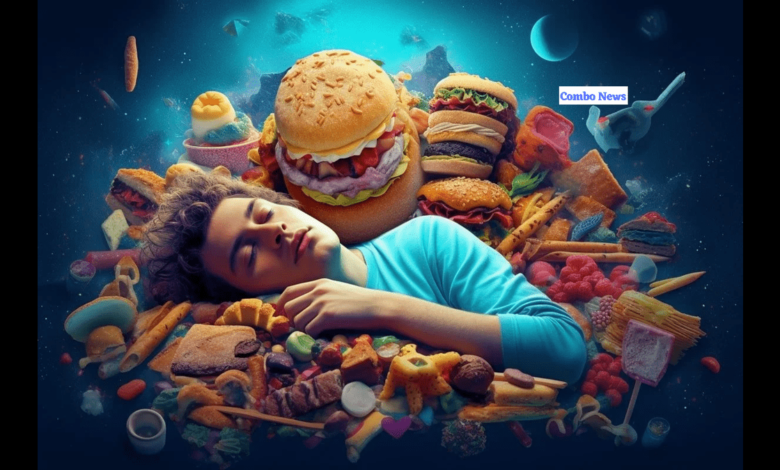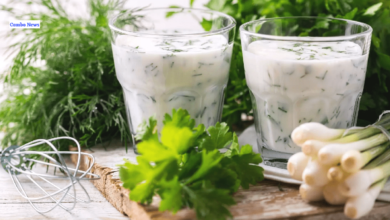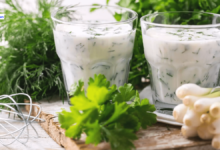Learn how your food influences: How much you sleep

Unveiling How Your Food Influences Your Sleep Cycle
In the hustle and bustle of modern life, where stress and erratic schedules have become the norm, it’s no surprise that sleep-related issues are on the rise. One often overlooked factor affecting our sleep quality is our dietary choices. The relationship between food and the sleep cycle is intricate and multifaceted.
In this article, we’ll delve into the details of how what you eat can significantly impact your precious nightly rest.

How Your Food Influences Your Food Cycle?
1. Understanding Circadian Rhythms:
To comprehend the connection between food and sleep, it’s crucial to grasp the concept of circadian rhythms. These are our body’s internal clocks that regulate various physiological processes, including the sleep-wake cycle.
2. The Role of Melatonin-Boosting Foods:
Melatonin is a hormone that plays a pivotal role in regulating sleep. Certain foods, such as tart cherries, contain natural melatonin and can be incorporated into your diet to promote better sleep.
3. Complex Carbohydrates for Evening Meals:
Opting for complex carbohydrates during dinner, like whole grains and sweet potatoes, can aid in the gradual release of serotonin, promoting a calming effect that facilitates better sleep.
4. Avoiding Stimulants Before Bed:
Caffeine and nicotine are stimulants that can disrupt your sleep patterns. It’s advisable to steer clear of these substances in the hours leading up to bedtime.
5. The Impact of Heavy Meals:
Consuming large, heavy meals close to bedtime can lead to discomfort and indigestion, adversely affecting your sleep. opt for lighter, well-balanced dinners instead.
6. The Influence of Hydration:
Dehydration can contribute to restless nights. However, excessive fluid intake before bedtime may lead to disruptive trips to the bathroom. Striking a balance is key.
7. The Power of Magnesium:
Magnesium-rich foods, such as leafy greens and nuts, can have a calming effect on the nervous system, promoting relaxation and better sleep.
8. Protein-Packed Snacks:
Incorporating a small, protein-rich snack before bedtime, like Greek yogurt, can help stabilize blood sugar levels and prevent midnight hunger pangs.
9. Alcohol’s Impact on Sleep:
While alcohol might initially induce drowsiness, it can interfere with the later stages of the sleep cycle, leading to disrupted and less restful sleep.
10. The Timing of Evening Meals:
Aim to have your last substantial meal at least two to three hours before bedtime to allow for proper digestion and minimize the risk of acid reflux.
11. Balancing Macronutrients:
Striking a balance between carbohydrates, proteins, and healthy fats in your evening meal can contribute to sustained energy levels and stable blood sugar throughout the night.
12. The Importance of Regular Meal Times:
Maintaining consistent meal times helps regulate your body’s internal clock, reinforcing a stable sleep-wake cycle.
13. The Role of Vitamins and Minerals:
Ensure your diet includes an adequate supply of essential vitamins and minerals, as deficiencies can lead to various health issues, including sleep disturbances.
14. Foods to Avoid Before Bed:
Certain foods, like spicy dishes and those high in sugar, can cause discomfort and heartburn, making it difficult to fall asleep and stay asleep.
15. Creating a Relaxing Bedtime Ritual:
In addition to food choices, establishing a calming bedtime routine, such as reading or gentle stretching, can signal to your body that it’s time to wind down.
Also Read | Top 14 Worst Foods for Stomach: A Guide to Your Belly Health

How Your Food Influences Your Sleep Cycle ? – Key Facts:
1. Sleep Hygiene Matters:
Beyond diet, practicing good sleep hygiene, including maintaining a comfortable sleep environment and a consistent sleep schedule, is crucial for optimal rest.
2. Individual Variations Exist:
It’s important to note that individual responses to food and sleep can vary. Pay attention to your body’s signals and adjust your diet accordingly.
3. Consulting a Professional:
If sleep issues persist, consulting a healthcare professional or a registered dietitian can provide personalized guidance tailored to your specific needs.
4. Regular Physical Activity:
Engaging in regular physical activity can promote better sleep. However, intense workouts close to bedtime may have the opposite effect for some individuals.
5. Mindfulness and Stress Reduction:
Practices such as meditation and mindfulness can alleviate stress, contributing to a more relaxed state conducive to better sleep.
6. Technology and Sleep:
Limiting screen time before bed is essential, as the blue light emitted by electronic devices can interfere with the production of melatonin.
7. The Impact of Chronic Conditions:
Chronic conditions such as sleep apnea or insomnia may require specialized interventions. Seeking professional help is crucial for managing these conditions effectively.
8. Environmental Factors:
Factors like noise, light, and temperature in your sleep environment can significantly influence the quality of your sleep. Ensure your bedroom is conducive to rest.
Also Read | Understanding Panic Attacks: Causes, Triggers, and Ways to Overcome Them
Conclusion?
In conclusion, the intricate relationship between food choices and the sleep cycle underscores the importance of a holistic approach to health. By making mindful dietary decisions and incorporating healthy sleep habits, you can pave the way for restful nights and overall well-being. Remember, small changes in your lifestyle can lead to significant improvements in your sleep quality over time.
FAQs
Do you sleep more if you eat less?
You may frequently wake up during the night if you don’t eat enough and find it difficult to get back asleep. It’s possible that you are physically hungry, and this wakes you up as your body tries to receive the calories and minerals it requires.
Can food affect your dreams?
There are several ways that food might keep us from sleeping. It might not raise your likelihood of having a nightmare on any one night, but it can increase the likelihood that you will recall the dreams you had, giving the impression that you have nightmares more frequently.








